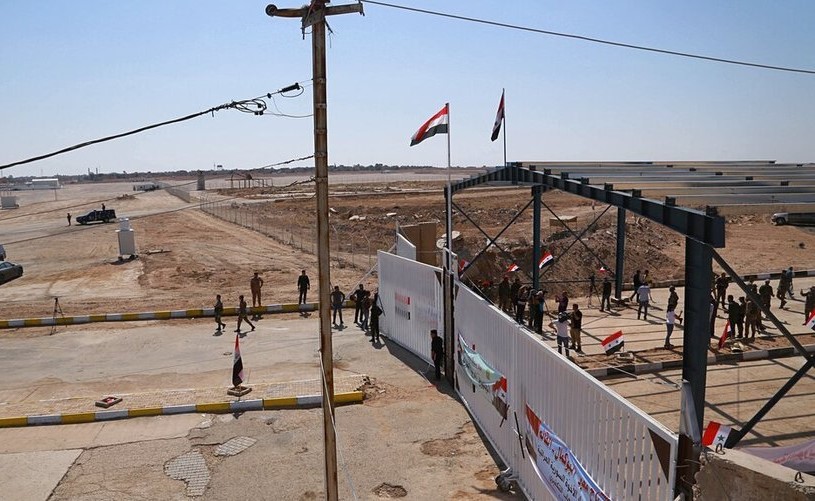MP for Nineveh Governorate Nayef Al-Shammari confirmed on Sunday the arrival of military reinforcements to the western Nineveh sector to enhance security on the border with the Syrian side, while a strategic expert indicated that the current events in the Syrian arena do not pose a direct threat to the internal situation in Iraq .
Al-Shammari said, “Military reinforcements arrived in Sinjar district and the western Nineveh sector to secure the borders,” indicating that “the reinforcements included two brigades, the first from the Iraqi army and the second from the federal police .”
Al-Shammari stressed that “the 2014 scenario will not return and no foreign party will set foot on Iraqi soil,” and he explained that “the events of 2014 were caused by open borders, secret informants, and the presence of corrupt leaders whose only concern was collecting money and imposing taxes, and this thing does not exist today in its entirety .”
Al-Shammari added, “The people of Nineveh stand united with the security forces of all kinds and formations, and will defend side by side until the last breath if Iraq is exposed to any harm… God forbid .”
He continued, “All data indicates the readiness of the people of Nineveh, including tribes, sheikhs and youth, to defend the entire land of Iraq, not just Nineveh, against any attempt to harm it, after they suffered from the injustice and terrorism of ISIS .”
Earlier, a security source revealed that military reinforcements consisting of a brigade, specifically the 101st Brigade within the 25th Armored Division, arrived in Sinjar (northwest of Mosul) to secure the Iraqi border with Syria, coinciding with the intensification of battles in Aleppo.
In this context, the strategic expert and professor of political science at the University of Mosul, Firas Elias, confirmed that the events in the Syrian arena do not pose a direct threat to the internal situation in Iraq .
Elias explained that “the news that talks about the danger facing Iraq as a result of what is happening in Syria is intentional news that aims to create a public opinion directed for certain purposes, but most of what is raised about this subject is not based on a logical basis, but rather is fears fueled by known agendas .”
Elias added that a distinction must be made between what is happening in Aleppo and the rest of the Syrian regions on the one hand, and what is happening on the Iraqi-Syrian border on the other hand. Despite the lack of a relationship between them, it is necessary to say that the greatest danger lies in the threats present on the border .
He stressed that the movements of the Syrian opposition do not directly threaten Iraq, because its conflict is with the Syrian regime and has no relation to the Iraqi state, and there is no logical basis for transferring the battle to the Iraqi interior .
Elias pointed out that the threats that ISIS might create if it exploited the Syrian situation are what raises concern, especially in the border areas, but he ruled out that the organization would be able to carry that out inside Iraq, pointing out that the security measures taken by the Iraqi government were comprehensive and broad .
Elias explained that these measures include military reinforcements, watchtowers, border detachments, electrified barbed wire, and concrete barriers, noting that these measures reduce the possibility of accidental breaches, although they cannot be completely ruled out .
Regarding the beneficiaries of the situation in Syria, Elias pointed out that Turkey is the biggest beneficiary, as it is expected to continue its military operations in northern Syria after taking control of Aleppo, which may enhance its plans to expand its operations in northern Iraq .
As for Iran, Elias described it as the biggest loser from the events in Syria, pointing out that the year 2024 may be the year of “Iran’s catastrophe,” as a result of its exhaustion on several fronts .
He added that Iran will seek to strengthen its influence in Iraq, as it is the geographical area closest to its national security .
Elias concluded by saying, “As Iraqis, we must fully realize that the Syrian problem is an internal Syrian affair, and we must secure our borders and not interfere in the conflict, and not be part of any regional or international projects. The national interest is the most important, and therefore we must think of our interests before the interests of others.”






